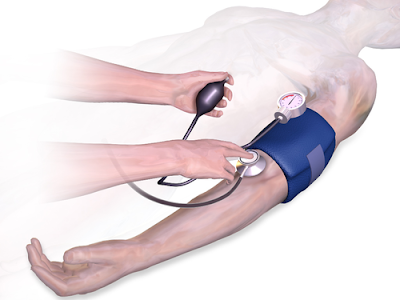What Are Cold Sores and How Do I Avoid Them
What are cold sores? If you want to know the facts, this article was written for you. Now you will know exactly what cold sores are - and what cold sores are not.
Cold sores, also called fever blisters and oral herpes, are painful, unsightly blisters that normally occur on the edge of the lips. They can also appear in other locations, such as nostrils, neck, cheek - and even on the fingertips.
Cold sores may also appear on the roof of the mouth or on the gums. This is very rare. But, because of this, cold sores are often confused with canker sores.
Here are some differences between the two that may help you determine what are canker sores and what are cold sores.
Canker sores always occur inside the mouth, usually on the softer tissue. Cold sores are caused by a virus - canker sores are not. Cold sores are contagious - canker sores are not.
Cold sores are very common. Nearly nine out of ten people worldwide carry the herpes simplex virus that causes cold sores. Only about 66% of these know what cold sores are because they get them regularly. Two strains of this virus - herpes simplex virus type 1 and type 2 - are responsible for cold sores and genital herpes sores.
Type 1 is most prevalent in facial sores. Type 2 is most apparent in below-the-waist sores. As far as we can tell, sores created by either type are identical in every respect. They appear the same, feel the same and last just as long.
Here are the main cold sore symptoms that define the five different stages of cold sores. Average duration from first itching to final healing can range from 18 to 28 days - depending on your health and the treatments you use.
1. Itching and tingling in the target area just prior to the outbreak.
2. Swelling of the area along with formation of small and painful fluid-filled pimple-like blisters.
3. Large, open sore develops when these little blisters break and merge.
4. Headaches, fever and swollen lymph glands under the jaw are painfully apparent.
5. Yellowish scab forms over the sore and heals without a scar.
When first infected, these symptoms may not appear for 15 to 20 days - or not at all. Often, initial symptoms are so mild that you may not know you have been infected. These may include fever and sore throat. The herpes virus, for the most part, will lie dormant in your nerve ganglia (the nerve roots) below the skin.
Now, when conditions are right, it will travel to the surface to replicate. The virus, being exceedingly small, will enter a nerve cell. It then takes control and forces the cell to create copies of itself. Once the cell is full, the controlling virus destroys the cell to release the new virus. Millions of such exploded cells in close proximity cause the swelling and open sore.
Cold sores are contagious during the entire cold sore event. You are extremely contagious once the sore has broken open - until it is totally healed. The fluid that weeps from the sore is teeming with active herpes virus. Kiss or touch is the normal means of spreading this virus. If you have a cold sore, be particularly cautious around infants or others. Also, be conscious that if the virus gets in the eye, it can cause cornea blisters. The permanent result is damaged vision.
Cold sore remedies may include over-the-counter creams and ointments. These will provide comfort, but do not expect them to speed healing. Fever, headache and swollen glands can be treated with your usual medicine for fever and headaches.
Using ice, particularly before the scab forms, will give pain relief, reduce the heat, and help drive the herpes virus back into hibernation. Keep the wound clean with alcohol on a cotton ball or swab.
Prevention includes care in not spreading to others or other parts of your own body. Avoid kissing when active cold sores are present. Keep hands clean. Cold sores itch and hurt a lot. Only touch sores with a cotton ball or tissue. Avoid sharing items with others, such as towels, when you or they have an active cold sore.
As we have seen, cold sores are facial sores caused by the herpes simplex virus. We have also seen that they are extremely contagious to others as well as to your self. Finally, in reviewing what are cold sores, we talked about basic cold sore care.
The good news is there are newly discovered and simply amazing natural cold sore remedies coming out all the time now. Some of these can cut the healing time in half, or more. And can actually prevent them in the future. Not every cold sore remedy works for everyone. You will need to do some trial-and-error to find what works for you.
What are cold sores? For most folks, they are a source of much pain, embarrassment and irritation. But, with a little research and testing, there is simply no reason for you to suffer from cold sores again.
Denny Bodoh is a 35-year newspaper veteran and dedicated natural health research writer. Discover a lot more about Cold Sores and amazing Cold Sore Treatments at Denny's popular site: http://www.3DayColdSoreCure.com
Article Source: http://EzineArticles.com/?expert=Denny_Bodoh


Comments